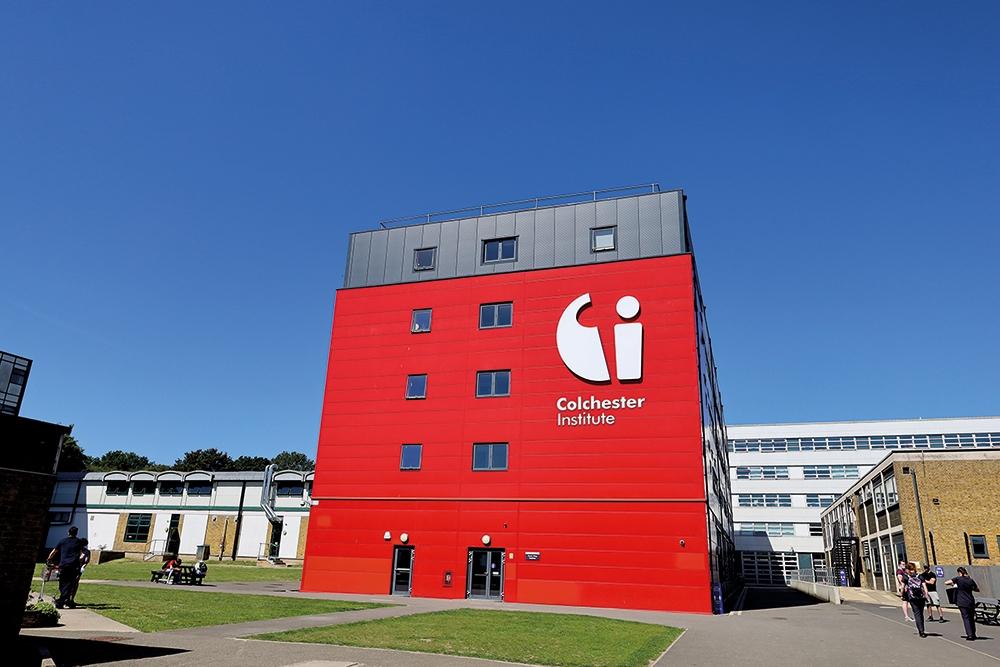Colchester Institute Cuts Teaching Staff Pay to Fund AI Classrooms

In a groundbreaking move to catapult education into the future, Colchester Institute has announced a bold initiative to reduce teaching staff pay in order to finance state-of-the-art AI classrooms. The revolutionary plan, which promises to replace traditional teaching methods with artificial intelligence, was unveiled shortly after part-time teaching staff saw their September pay slashed—presumably to free up funds for the next generation of robotic educators.
“We’re excited to announce the dawn of AI-enhanced learning,” said the institute’s spokesperson, while reassuring the now significantly poorer staff that “the future of education is in safe—albeit digital—hands.” Sources confirm that teaching staff were less than enthusiastic when they learned their holiday pay had been recalculated to bankroll the technology that will soon be making them redundant.
“The government may have reversed holiday pay regulations, but we saw it as an opportunity!” enthused the HR department. “Sure, our part-year staff won’t be able to afford groceries, but just think of the savings! Instead of wasting money on humans, we’re investing in sleek, efficient AI systems that never sleep, never strike, and never ask for a pension.”

“Let Them Teach Code”
When asked how the decision would impact the livelihoods of actual human educators, the institute offered innovative solutions: “We’re encouraging our staff to upskill and embrace the future! We’ll be offering evening classes on basic coding and how to build your own chatbot—though, to be clear, these will be unpaid.”
One lecturer, now pondering a life of instant noodles and re-learning how to use public libraries for heating, expressed concern. “We were promised a pay rise. Instead, we got a pay cut, and now I hear a machine might be taking over my job. What’s next—an AI to mark the exams, attend the staff meetings, and complain about budget cuts? Oh wait, they don’t even need to pretend to care.”
Institute leaders assure staff that the introduction of AI isn’t about replacing teachers, but rather “enhancing the learning experience.” According to insiders, the AI classrooms will feature cutting-edge holographic professors, capable of answering up to three pre-programmed questions per lesson. “Imagine a future where students are greeted by an AI that never loses its temper, no matter how many times they forget to submit their assignments,” a senior manager gushed. “We expect satisfaction levels to soar—at least for the technology budget.”
Teachers, now expected to compete with AI in the classroom, are already adjusting to their new reality. “I’m learning how to speak in ones and zeros, just in case,” quipped a disillusioned English lecturer, adding, “And since my pay got slashed, I’ve been told I can now work more efficiently—if AI can teach without sleep, maybe I can too.”
Colchester Institute remains confident in their vision. “We’re leading the charge into the future,” said the Principal, while downloading the latest AI-driven “Visionary Leadership” app on his phone. “In these times of fiscal responsibility, we must make tough decisions. Teachers have had their time, but why spend money on humans when machines don’t require breaks, salaries, or the pesky business of holiday pay?”
The AI rollout is expected to begin next term, with the added bonus that students can now submit complaints directly to the robots in charge of their education. Staff, on the other hand, are looking forward to their new roles—primarily cleaning the AI classrooms.
As one staff member wryly observed, “At least the AI won’t need a union. Or, you know, food.”
 Never miss a story from us, subscribe to our newsletter
Never miss a story from us, subscribe to our newsletter